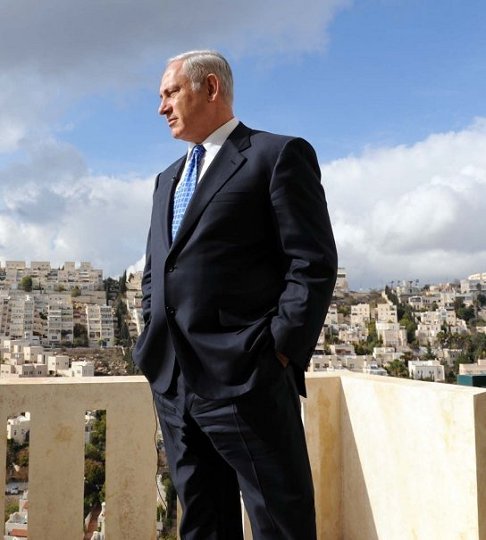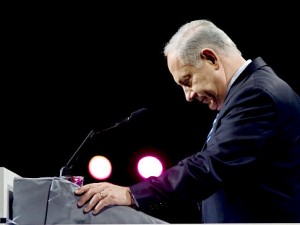JERUSALEM ? Israel’s leader on Sunday dismissed a call from a key government partner to share the holy city of Jerusalem with the Palestinians, a reminder of the obstacles facing already troubled peacemaking efforts.
Conflicting claims to east Jerusalem lie at the heart of the Israeli-Palestinian conflict. The dispute over the area, home to sensitive Jewish, Muslim and Christian holy sites, has derailed past peace talks and spilled into violence. Palestinians claim the sector as the capital of their future state.
Israeli Prime Minister Benjamin Netanyahu’s reaffirmation of his intention to hold on to east Jerusalem drew criticism from the Palestinians and was likely to increase friction with the Americans. The White House Mideast envoy is scheduled to arrive this week in another attempt to push peace efforts forward.
Netanyahu’s defense minister, Ehud Barak of the centrist Labor Party, called for sharing Jerusalem Barak’s idea does not reflect the government’s view. with the Palestinians. But a government official said
The Palestinians want to establish their future state in the West Bank and east Jerusalem, lands Israel captured in the 1967 Middle East war. Israel later annexed east Jerusalem in a move that is not recognized by the international community.
Israel’s internal diplomatic flare-up came just days after the U.S. dropped its effort to persuade IsraelWest Bank as a way of restarting peace talks. to reinstate a moratorium on new building states in the
Instead, U.S. Secretary of State Hillary Rodham Clinton said indirect talks would resume, while insisting that the two sides must now deal with core issues. Those include the status of Jerusalem, as well as borders, settlements and refugees.
Palestinians blasted Israel’s rejection of their claim to east Jerusalem.
“Mr. Netanyahu is distancing himself not from Barak, he is distancing himself from international consensus, he’s distancing himself from international resolutions and distancing himself from international law,” said Palestinian spokesman Husam Zomlot. “And most importantly, he’s distancing himself from any possible negotiated settlement based on the two-state solution.”
Jordanian Foreign Minister Foreign Minister Nasser Judeh on Sunday urged the U.S. to come up with a new formula to push the process forward.
Interviewed on ABC-TV, Palestinian Prime Minister Salam Fayyad said the U.S. might have to express its own ideas.
“It may be unavoidable, actually, for the United States acting as a broker at some point to come in with bridging proposals so we make this happen,” he said.
Since Netanyahu came to power nearly two years ago, he has grudgingly accepted the principle of a Palestinian state next to Israel. He has carefully refrained from getting into specifics about the core issues, however, saying these must be negotiated.
Clinton expressed frustration with the Israeli-Palestinian impasse over the weekend, though she did not suggest a new way forward. She spoke at a forum in Washington.
Addressing the same gathering, Barak said the holy city will have to be shared as part of a future peace deal.
An Israeli official told The Associated Press that Barak was expressing a personal opinion, not the government’s position.
“Those remarks were not coordinated with the prime minister,” the official said. He spoke on condition of anonymity because Netanyahu has not responded publicly to Barak’s remarks or to Clinton’s speech.
Since Netanyahu came to power nearly two years ago, Israelis and Palestinians have not been close to tackling major issues. Netanyahu’s more moderate predecessor offered a Palestinian state with joint control of key Jerusalem holy sites among other features, but the Palestinians did not accept it.
In her speech Friday, Clinton urged both sides to lay out their positions on these core issues “without delay and with real specificity.” She pointedly called for compromise on the contested holy city, observing that “there will surely be no peace without an agreement” on Jerusalem ? “the most sensitive of all the issues.”
U.S.-led negotiations broke down after just three weeks and Israel refused to renew a 10-month moratorium on new settlement housing. Palestinians said they would not return to the talks unless there was a total freeze in West Bank and east Jerusalem construction. Israel countered that such a condition had never been made before, and the issue should be part of the negotiations.





